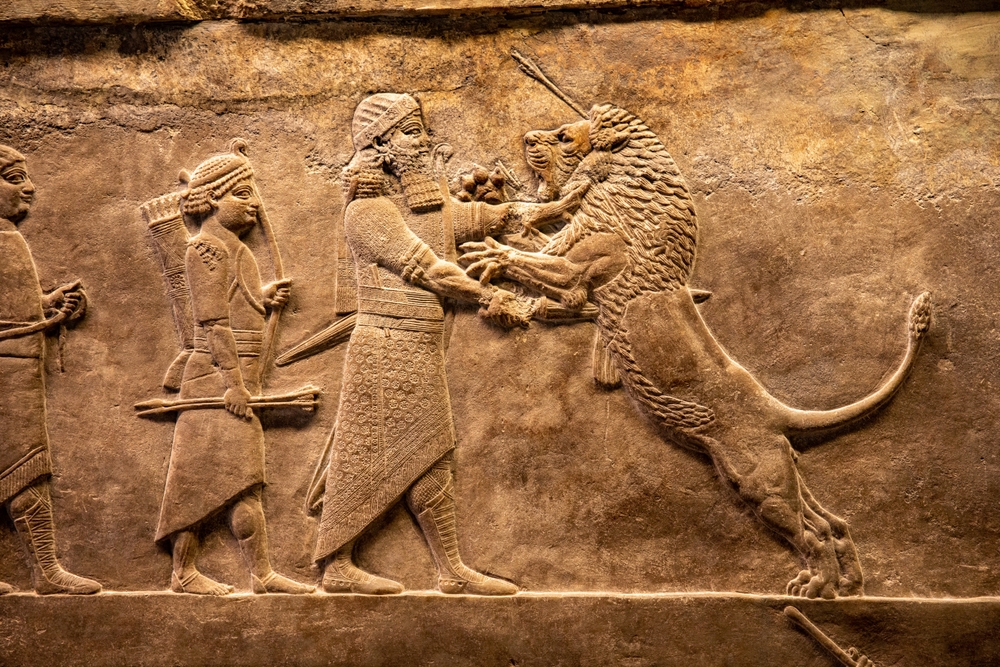Grocery chains play a crucial role in keeping the world fed, offering everything from fresh produce to household essentials. Some of these companies have grown into global giants, serving millions of customers daily across vast networks of stores. They have achieved this success through innovative strategies, competitive pricing, and a commitment to meeting diverse consumer needs. While each chain has its unique approach, their scale and reach highlight the importance of efficient operations and adaptability in a competitive industry. Understanding the largest grocery chains gives insight into how they shape global shopping habits and influence local economies.
Walmart

Walmart, based in the United States, is the largest grocery chain in the world. With over 10,500 stores operating globally, it serves millions of customers daily. Walmart’s grocery division is a major contributor to its revenue, accounting for over 56% of its annual sales. Its vast size and reach are unparalleled, spanning 24 countries and offering both physical stores and online delivery options. The retailer focuses on providing low prices, making it a go-to destination for budget-conscious shoppers. Walmart’s supply chain and logistics systems are among the most advanced in the industry, ensuring fresh produce and stocked shelves. In addition to groceries, it offers a wide array of household goods, clothing, and electronics, solidifying its reputation as a one-stop shop.
Carrefour
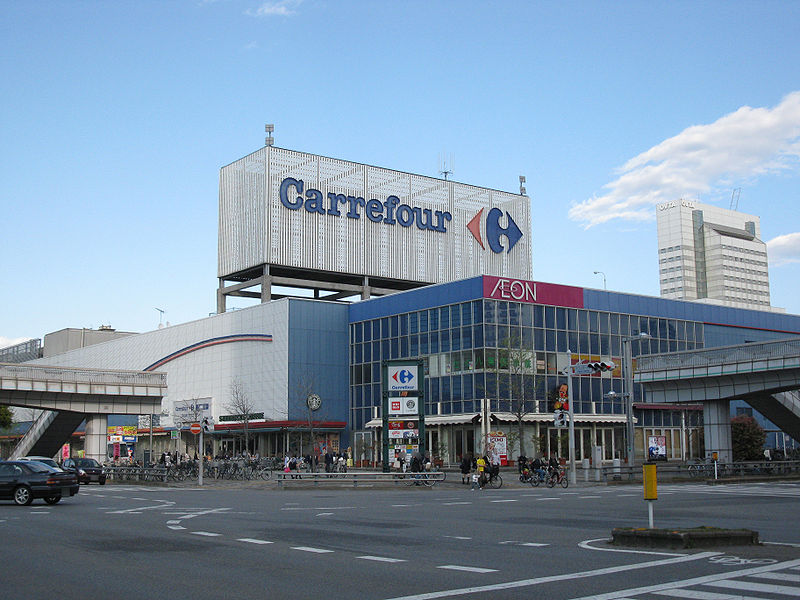
Carrefour, headquartered in France, is a leading global grocery chain with over 12,000 stores across more than 30 countries. Known for its hypermarkets, it was among the pioneers of this large-format retail model. Carrefour’s diverse offerings range from fresh produce to clothing, electronics, and home goods. The chain’s focus on sustainability has led it to adopt initiatives like reducing food waste and promoting local products. Its presence is especially strong in Europe, Latin America, and Asia, with a growing emphasis on e-commerce. Carrefour continuously adapts to market demands, introducing private-label products to cater to varying customer preferences. Its vast network and innovative strategies make it a powerhouse in the grocery retail industry.
Tesco
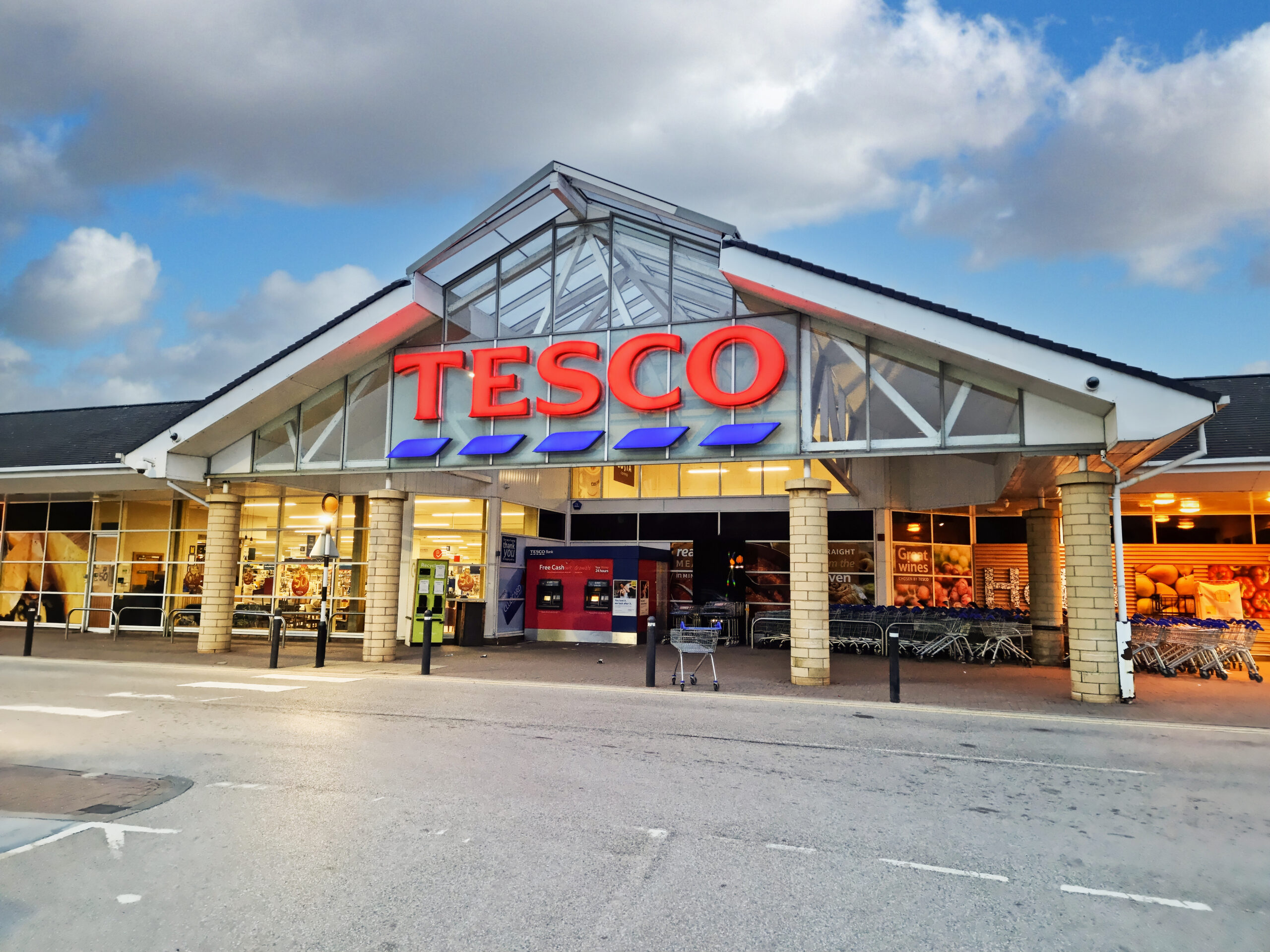
Tesco, the UK-based supermarket giant, operates in over a dozen countries and boasts more than 4,600 stores worldwide. It holds a dominant position in the UK market, capturing a significant share of grocery sales. Tesco’s stores range from large hypermarkets to smaller, convenience-focused outlets, catering to diverse consumer needs. The company has heavily invested in digital transformation, offering robust online grocery shopping and delivery services. With its extensive private-label products, Tesco appeals to value-conscious shoppers while maintaining quality. Tesco’s Clubcard loyalty program is one of the most successful in the industry, fostering customer retention. Its reputation for innovation and adaptability ensures its continued success globally.
Aldi
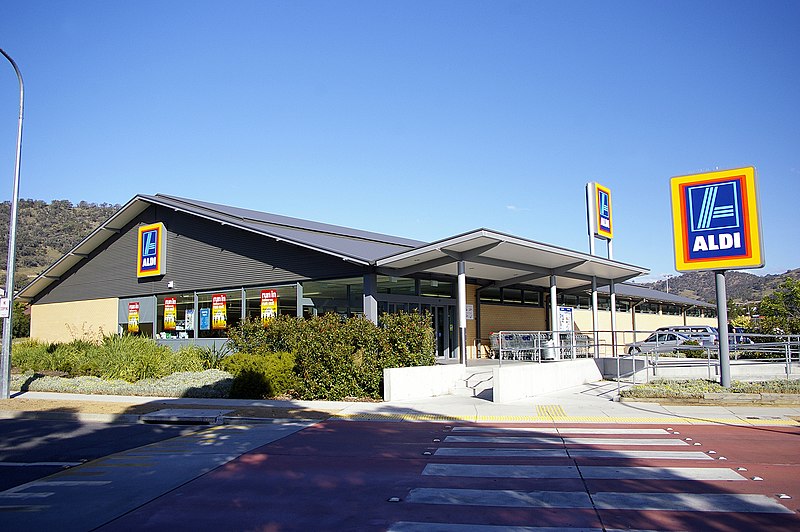
Aldi, originally founded in Germany, operates over 11,000 stores across 20 countries. Known for its no-frills shopping experience, Aldi emphasizes efficiency and cost savings for its customers. The chain’s compact store layouts and private-label products allow it to keep prices consistently low. Aldi has seen rapid expansion, especially in the US, where it competes with traditional grocery stores by offering unique, affordable products. Its focus on sustainability and environmentally friendly practices, like reducing plastic packaging, aligns with modern consumer values. By limiting product selection, Aldi simplifies shopping while ensuring high turnover and freshness. Its innovative approach has revolutionized the discount grocery market worldwide.
Kroger
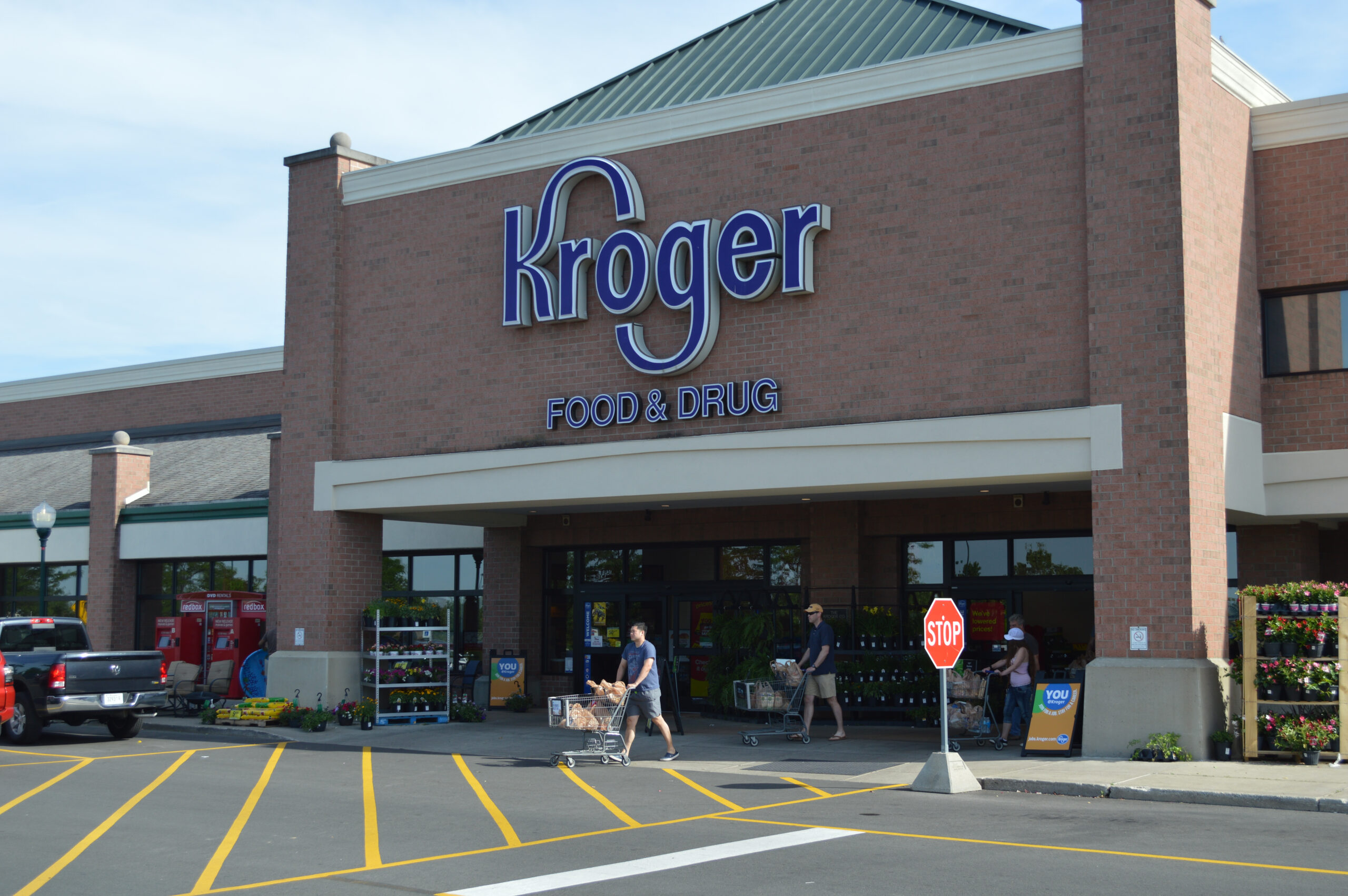
Kroger, based in the United States, is one of the largest grocery chains with over 2,700 stores nationwide. As an industry leader, it generates over $137 billion in annual revenue. Kroger operates under multiple banners, including Fred Meyer, King Soopers, and Ralphs, catering to diverse regional preferences. The chain is renowned for its fresh food departments, particularly bakery and deli sections, which draw millions of shoppers. Kroger has invested heavily in technology, including online ordering and automated fulfillment centers. Its loyalty program, coupled with personalized discounts, keeps customers coming back. With a strong emphasis on quality and convenience, Kroger remains a staple in American grocery shopping.
Lidl
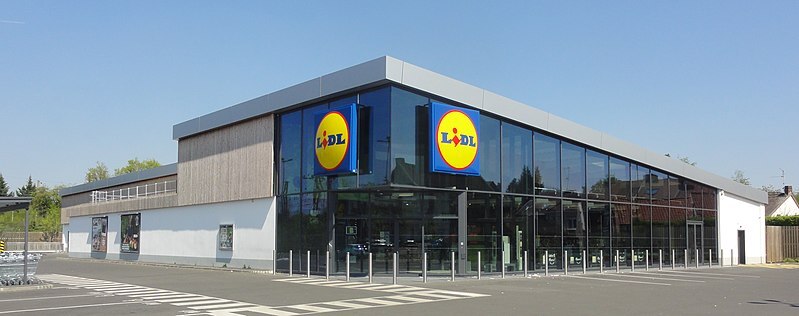
Lidl, a German-based retailer, operates more than 12,000 stores across 32 countries. Similar to Aldi, Lidl focuses on offering high-quality private-label products at affordable prices. It has rapidly gained popularity in Europe and the United States, thanks to its simple store layout and cost-efficient operations. Lidl’s weekly specials and fresh bakery sections are customer favorites, ensuring a steady stream of shoppers. The company has invested in sustainability, pledging to reduce its carbon footprint and promote eco-friendly products. With a smaller product range, Lidl can streamline operations and offer consistently low prices. Its strategic expansion continues to challenge traditional supermarket models.
Costco
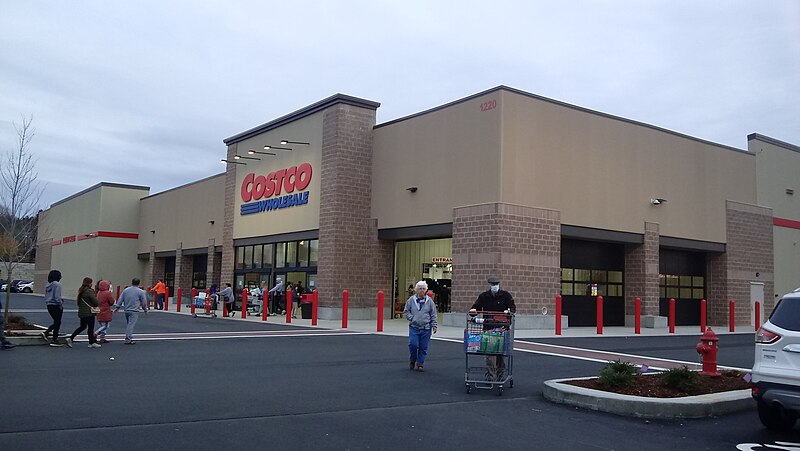
Costco, a US-based warehouse club, operates over 850 locations worldwide, serving millions of members. Known for its bulk-buying model, Costco provides high-quality products at competitive prices. While not a traditional grocery chain, its grocery section accounts for a significant portion of its revenue. The retailer’s Kirkland Signature private label is synonymous with quality and value. Costco’s stores are strategically placed in key markets, making it a favorite for families and businesses alike. With an emphasis on efficiency, Costco maintains one of the highest sales per square foot in the industry. Its unique membership model fosters customer loyalty and exclusivity.
7-Eleven
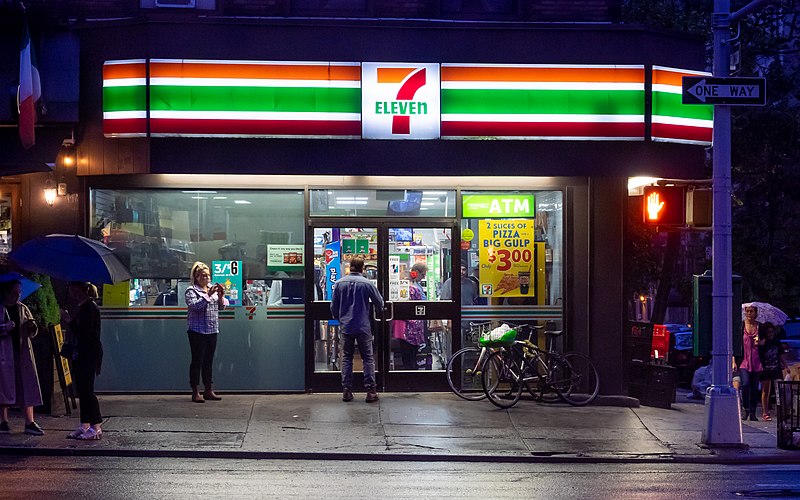
7-Eleven is the world’s largest convenience store chain, with over 78,000 locations in 19 countries. While primarily a convenience store, its extensive grocery offerings contribute to its massive footprint. The chain is particularly dominant in Asia, especially Japan, where its parent company, Seven & I Holdings, is based. Known for its round-the-clock availability, 7-Eleven serves as a lifeline for urban dwellers seeking quick grocery pickups. The company constantly innovates, offering fresh meal options, snacks, and even mobile payment systems. Its small store format allows it to operate efficiently in densely populated areas. With its widespread accessibility, 7-Eleven continues to thrive globally.
Auchan
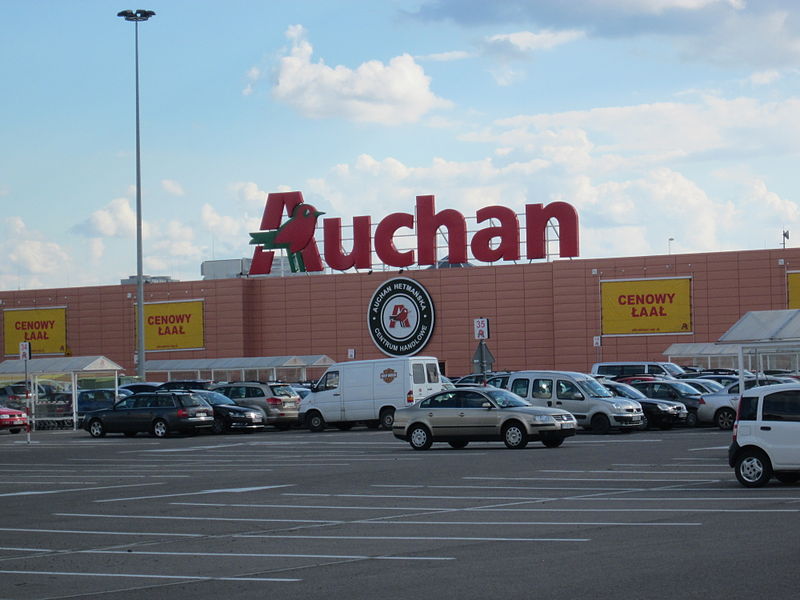
Auchan, based in France, operates over 2,000 stores in 17 countries, predominantly in Europe and Asia. Known for its hypermarkets, Auchan provides a wide range of grocery and non-grocery items. The chain emphasizes affordability, often positioning itself as a low-cost alternative in competitive markets. Auchan has also embraced digital transformation, launching online delivery services in several regions. The company’s global reach is bolstered by partnerships and joint ventures in emerging markets. Auchan’s focus on sustainability includes efforts to reduce energy consumption in stores and promote eco-friendly products. Its expansive portfolio ensures a strong presence in the global retail landscape.
Woolworths Group
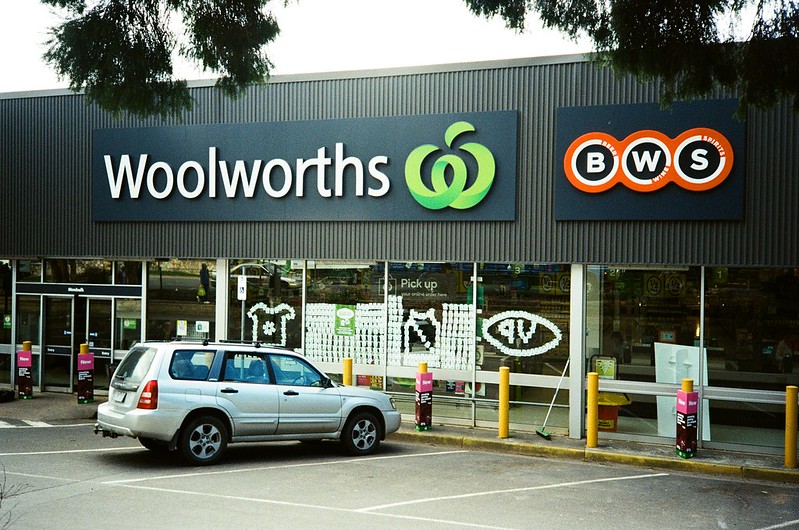
Woolworths Group, headquartered in Australia, operates over 3,000 stores across Australia and New Zealand. Known for its fresh produce and customer-focused service, Woolworths dominates the grocery market in its home region. The chain generates substantial revenue, driven by its loyalty program, Everyday Rewards, which offers personalized discounts. Woolworths has also invested in sustainability, committing to renewable energy and reducing food waste. Its online grocery delivery service is among the most comprehensive in Australia, appealing to tech-savvy shoppers. By partnering with local suppliers, the company ensures a steady supply of high-quality, fresh products. Woolworths continues to expand its reach, maintaining its position as a market leader.
Metro AG

Metro AG, based in Germany, operates over 670 wholesale and food service stores in 24 countries. Focused on serving business customers, Metro offers bulk groceries, fresh produce, and kitchen essentials. Its reach extends primarily across Europe and Asia, catering to hotels, restaurants, and catering businesses. Metro has adopted a digital-first strategy, integrating e-commerce and data-driven solutions for its customers. The chain is known for its high-quality meat and seafood sections, which are highly valued by professional buyers. Metro’s sustainability initiatives include reducing plastic use and promoting sustainable sourcing. Its specialized services make it a significant player in the wholesale grocery sector.
E.Leclerc
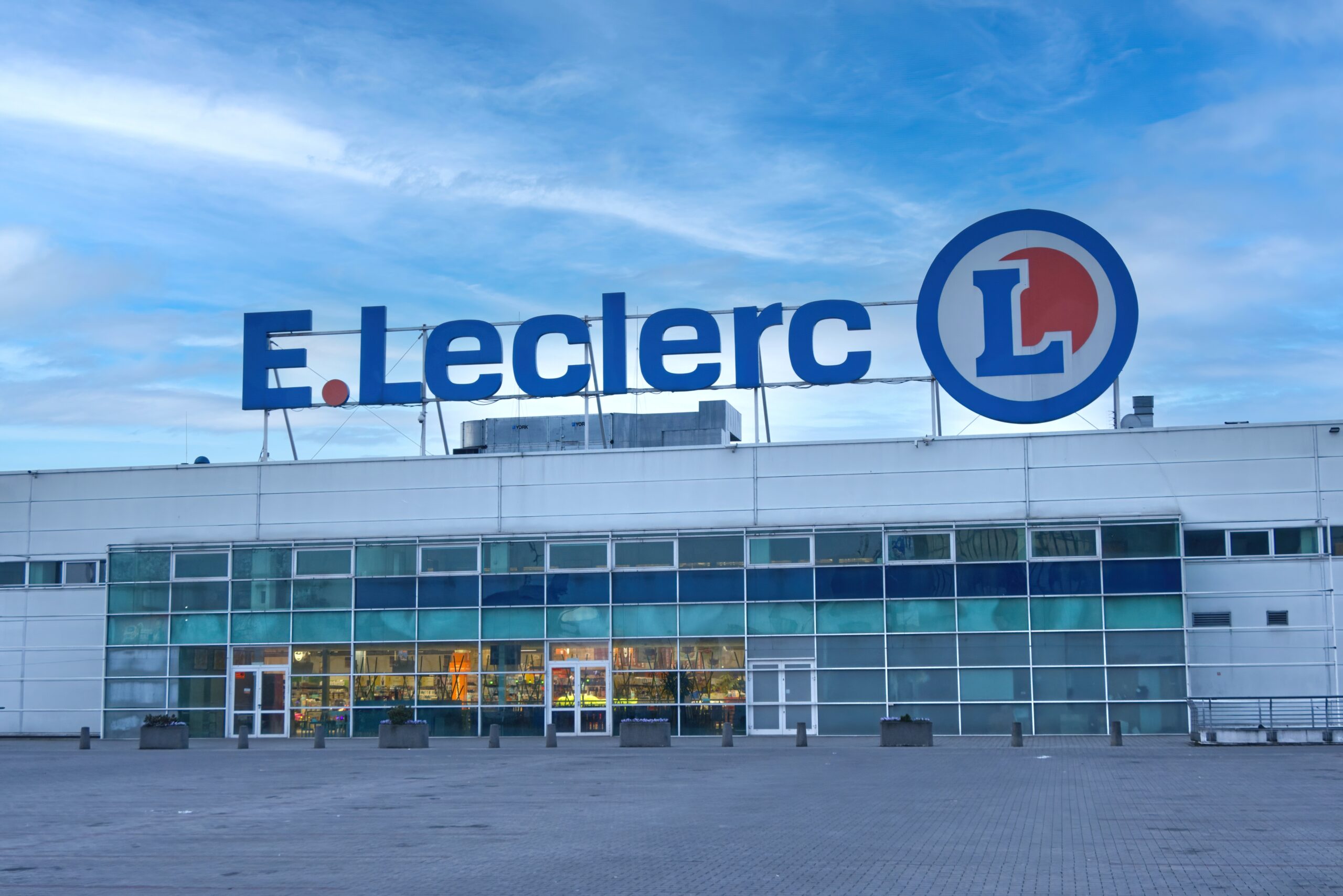
E.Leclerc, a French cooperative retail chain, operates over 700 hypermarkets and 500 smaller stores across Europe. The chain is especially popular in France, where it holds a substantial share of the grocery market. E.Leclerc emphasizes affordability, offering competitive pricing on groceries and household goods. Its commitment to customer satisfaction is evident through loyalty programs and regular promotions. The company has embraced e-commerce, providing online ordering and delivery options in key markets. Sustainability is a key focus, with efforts to reduce energy consumption and promote local sourcing. E.Leclerc’s extensive network and customer-oriented approach ensure its continued success.
Coles Group
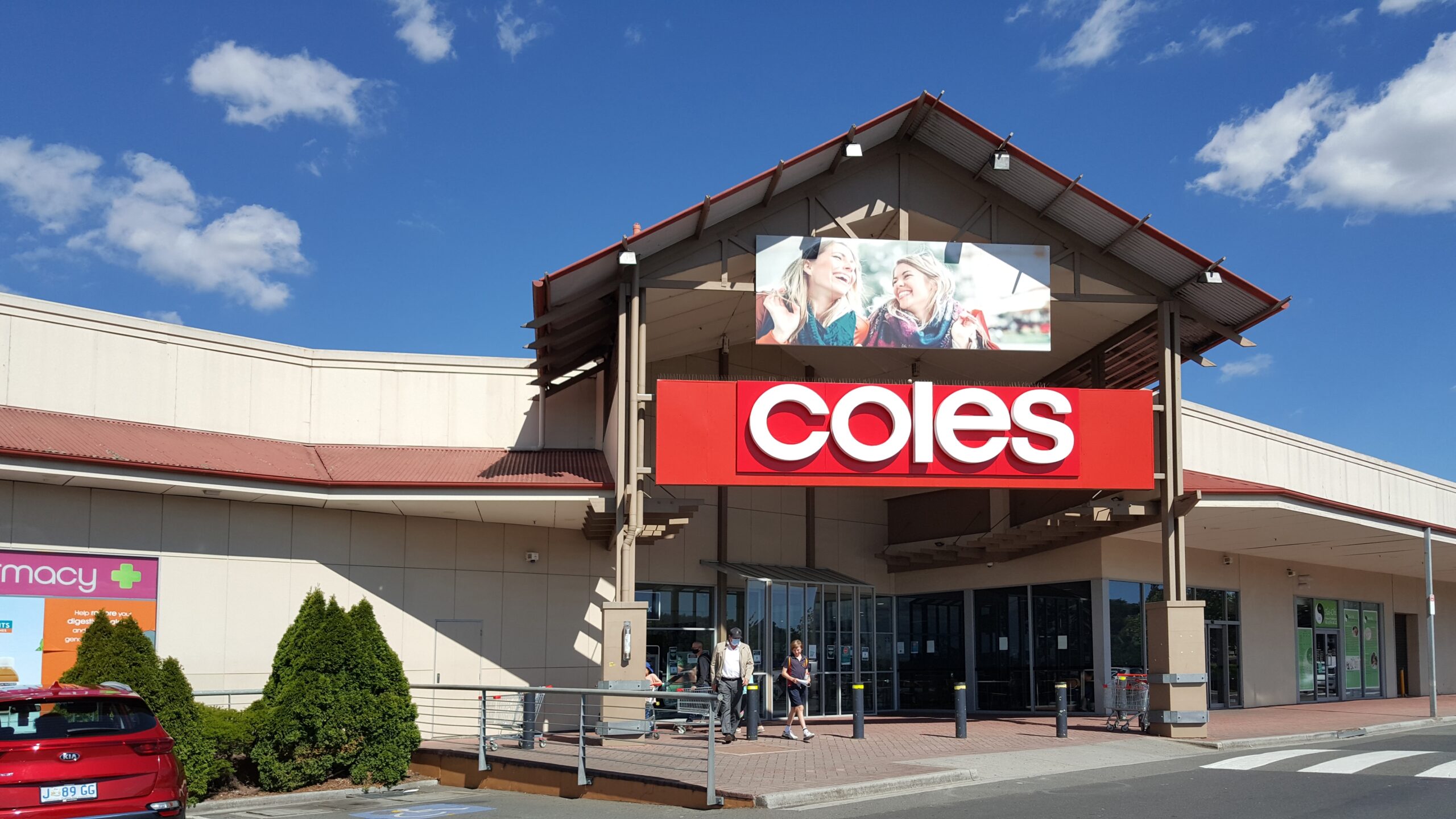
Coles Group, one of Australia’s largest grocery retailers, operates over 800 stores nationwide. Known for its high-quality fresh food offerings, Coles is a staple in Australian households. The chain’s Flybuys loyalty program is widely popular, offering rewards and discounts to millions of shoppers. Coles has heavily invested in technology, including online ordering and automated warehouses, to improve efficiency. Its focus on sustainability includes reducing plastic waste and increasing the use of renewable energy. The company also collaborates with local farmers, ensuring fresh and sustainably sourced products. Coles continues to lead in innovation and customer service in the Australian market.
SPAR International
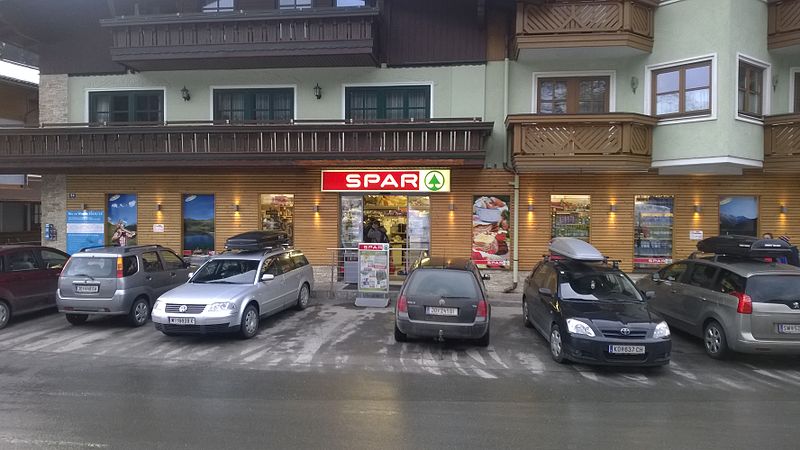
SPAR International operates over 13,000 stores in 48 countries, making it one of the most geographically diverse grocery chains. Founded in the Netherlands, SPAR is a cooperative network of independently owned and operated stores. The chain offers a wide range of groceries, fresh produce, and convenience items, tailored to local markets. SPAR’s emphasis on community engagement and local sourcing has contributed to its success worldwide. The company has invested in modernizing its stores, including introducing self-checkout and online shopping options. Sustainability is a key focus, with efforts to reduce carbon emissions and promote responsible sourcing. SPAR’s adaptability ensures its relevance in diverse markets.
Intermarché
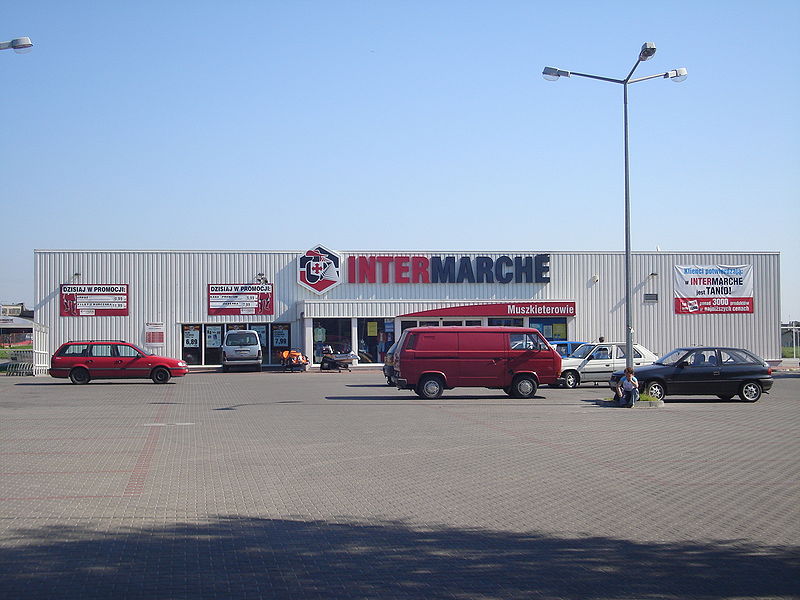
Intermarché, part of the French retail group Les Mousquetaires, operates over 1,800 stores across Europe. Known for its competitive pricing, the chain appeals to cost-conscious shoppers looking for quality products. Intermarché has a strong focus on private-label goods, which offer excellent value and variety. The chain’s emphasis on fresh produce and meat sections sets it apart from competitors. Intermarché is also committed to reducing food waste, donating unsold items to local charities. Its online shopping and delivery services have expanded significantly, particularly during the pandemic. The company’s localized approach helps it maintain a strong connection with its customer base.
Whole Foods Market
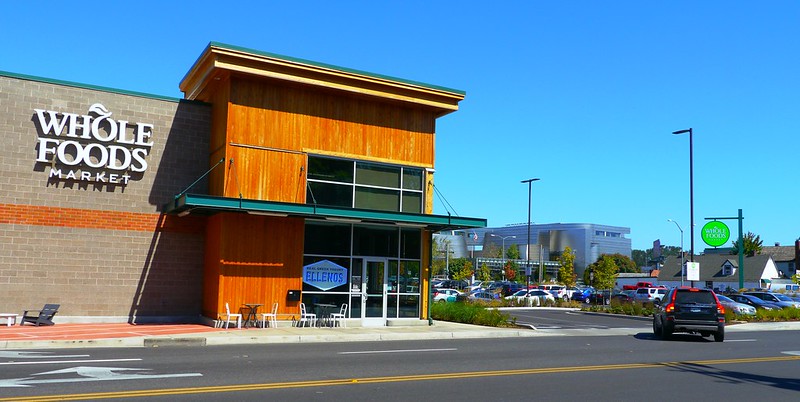
Whole Foods Market, based in the United States, operates over 500 stores globally. Known for its premium organic and natural food offerings, it caters to health-conscious consumers. Acquired by Amazon in 2017, Whole Foods has integrated with the e-commerce giant’s delivery services. The chain emphasizes sustainability, partnering with local farms and promoting eco-friendly packaging. Whole Foods stores feature unique layouts and prepared food sections, attracting urban shoppers. Its focus on quality and ethical sourcing commands higher prices, positioning it as a niche retailer. Despite its smaller footprint, Whole Foods remains a leader in the organic grocery market.
Meijer
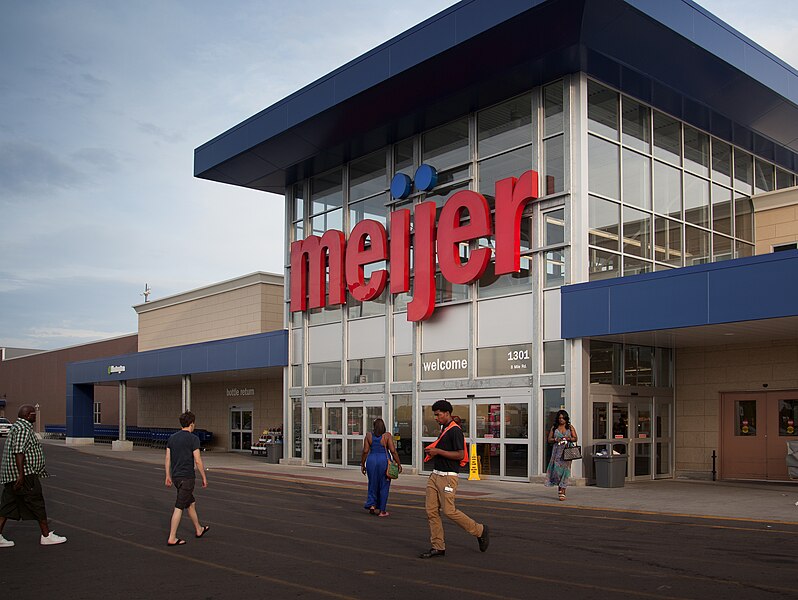
Meijer, a regional US grocery chain, operates over 250 stores in the Midwest. Known for its supercenter format, Meijer combines groceries, clothing, and household goods under one roof. The company is family-owned and has a strong reputation for customer service and quality products. Meijer’s fresh food sections, particularly produce and meat, are consistently praised by shoppers. Its loyalty program, mPerks, provides personalized savings and digital coupons to millions of users. The chain has embraced online grocery services, offering curbside pickup and home delivery options. Meijer continues to expand within its region, maintaining its competitive edge.
Morrisons
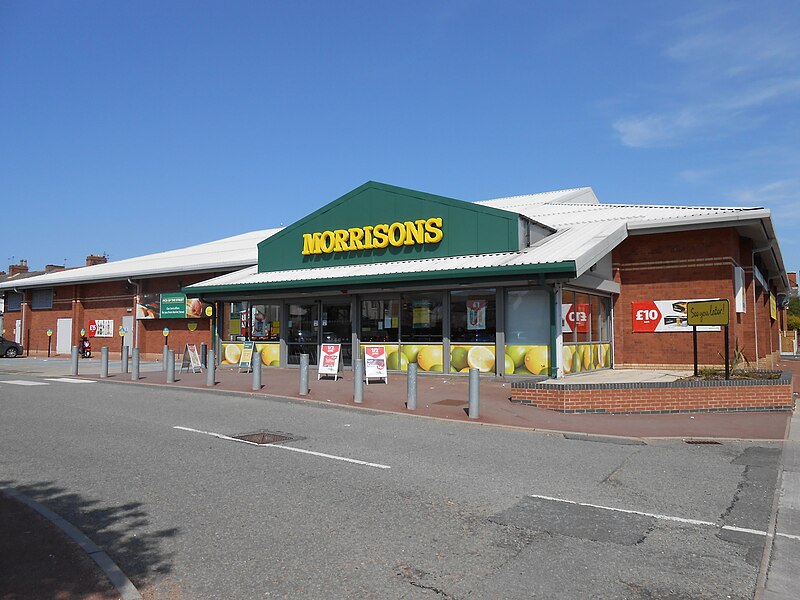
Morrisons, one of the largest supermarket chains in the UK, operates over 500 stores nationwide. Known for its focus on fresh food, the chain runs its own manufacturing facilities, including bakeries and meat processing plants. Morrisons’ Market Street concept offers shoppers an in-store experience with fresh counters for fish, deli, and bakery items. The chain’s online grocery service, supported by Ocado, has grown rapidly in recent years. Morrisons is committed to sustainability, sourcing British products and reducing single-use plastics. Its affordable pricing and customer-oriented approach have cemented its position in the UK grocery market. The company also invests in community programs, strengthening its local connections.
Target
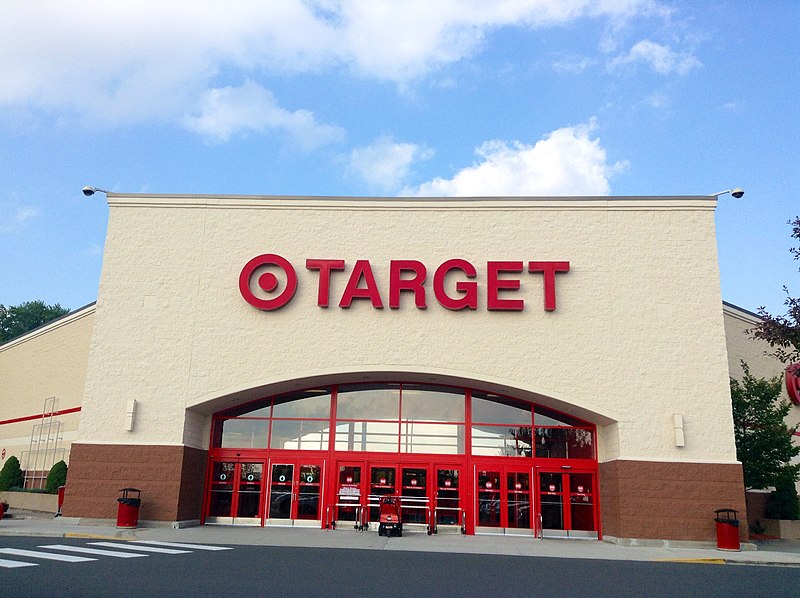
Target, a US-based retail giant, operates over 1,900 stores across the United States. While not solely a grocery store, Target’s grocery division generates billions in revenue annually. The chain focuses on offering a curated selection of fresh produce, packaged goods, and private-label brands. Target’s Good & Gather brand has become a popular choice for shoppers seeking affordable yet high-quality products. Its digital transformation includes same-day delivery and curbside pickup, appealing to busy consumers. Target’s visually appealing stores and wide-ranging product offerings attract a broad demographic. Its innovative strategies and consistent growth make it a significant player in the grocery market.
Trader Joe’s
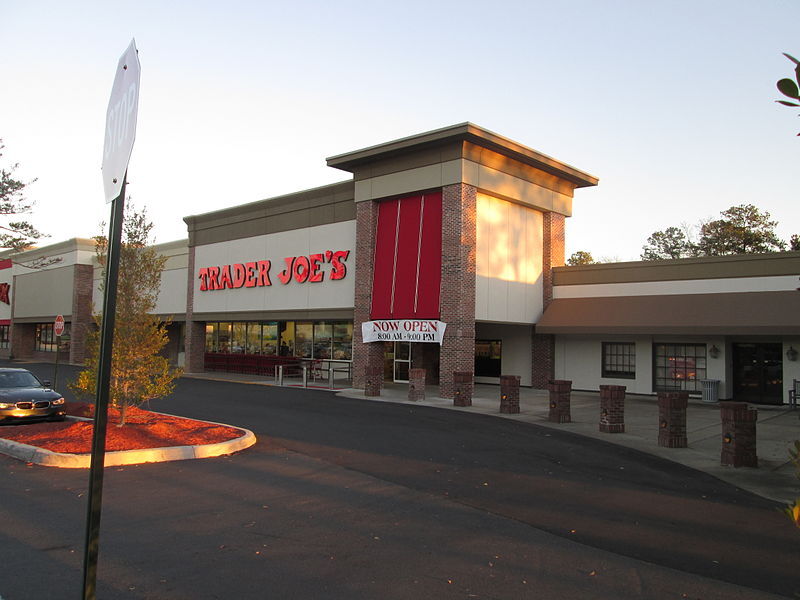
Trader Joe’s, a specialty grocery chain based in the US, operates over 500 stores. Renowned for its unique private-label products, Trader Joe’s offers an eclectic mix of international and health-focused items. Its smaller store format and friendly customer service create a boutique shopping experience. Trader Joe’s avoids traditional advertising, relying on word-of-mouth and its quirky branding to attract customers. The chain focuses on quality over quantity, stocking fewer items than competitors but maintaining high standards. Sustainability is a priority, with efforts to reduce packaging waste and source ethically. Trader Joe’s cult following and distinctive identity set it apart in the grocery landscape.
This article originally appeared on Rarest.org.
More From Rarest.Org
Dams are some of the most impressive feats of engineering in the world. They help control water flow, provide hydroelectric power, and create massive reservoirs. Read more.
The natural world holds some truly bizarre and resilient invertebrates that have adapted to survive extreme environments and conditions. From microscopic creatures that withstand the vacuum of space to deep-sea dwellers thriving in freezing darkness, these organisms showcase an impressive range of survival skills. Read more.
Throughout history, some of the earliest empires shaped civilizations in ways that still resonate today. These ancient realms, spanning regions from Mesopotamia to the Nile, introduced advancements in law, governance, architecture, and culture that set the stage for human progress. Read more.



